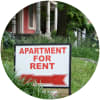Guide to Retain & Attract Long-Term Tenants + Pros & Cons

According to US Census Data, 14.2% of the renter population changed households between 2019 and 2020. However, apartment turnover rates have continued to decrease year-over-year (hitting the lowest rate in over 20 years at 42.1% in 2020). Property managers and landlords are now shifting their focus toward long-term tenant retention.
Why? Apartment turnover costs time, effort, and money. This article will walk you through the actual cost of apartment turnover. We’ll also look at the advantages of long-term tenants and how to retain them.
While you consider some of these tips and tricks, remember to consult your state and local laws and current lease agreement before changing up how you operate your business.
How to Retain & Attract Long-Term Tenants
Long-term tenants aren’t as rare as you might think. You can attract long-term tenants with small but deliberate changes to your management strategy. For starters, you can begin by looking at 9 Property Management Marketing Ideas to Implement in 2021.
Then, take a look at a few excellent examples of how to retain and attract long-term tenants for your rental property.
1. Demonstrate Strong Communication
Even before a prospective renter becomes a tenant, ensure you have stellar communication. What this looks like is ensuring that you are highly communicative throughout the application, touring, and lease agreement process. Make sure they know you are readily available to answer any questions they may have and that you are there to work with them to see if it’s a good fit for both of you.
Once they have signed the lease and become tenants, it is still your responsibility as a landlord to maintain that strong level of communication. Ideally, your tenant will know how to get in touch with you if needed, but in case they don’t have that information handy, it should be detailed in the lease agreement.
Ensure your tenant knows when and how to reach you and let them know that emergencies are always an exception.
If a tenant reaches out to you, make sure to respond to them within a timely manner. Even if it is just as simple as acknowledging that you received their request and working on finding a solution, make sure you communicate that rather than having them wait until you find the answer.
2. Be Flexible with Rental Policies
Rental policies are there for a reason - to help protect you and your rental property. With that said, if you’ve found a good tenant, you might want to consider being a bit more flexible to keep them around longer.
There are several ways you can be flexible without compromising your position as a landlord. Consider exceptions to policies such as allowing them to:
- Have a pet
- Paint the walls
- Hang things up
- Etc.
Although you might think these things cost more in the long run, they should be well worth it. It’s simple details like this that will make your rental property feel more like a long-term home for them, encouraging them to stay for the long haul.

3. Keep Your Property Updated
Before listing your rental property, make sure you do the proper due diligence to make any necessary upgrades. Your unit will show better and be more likely to attract quality applicants who will prioritize maintaining the quality of your home.
As a landlord, always make any necessary repairs before new tenants move in, including things like:
- Installing wood floors
- Painting walls
- Renovating the kitchen
- Upgrading appliances
- Etc.
Upgrades and maintenance shouldn’t stop once your tenant has moved in, however. If able, perform routine walk-throughs and take a look at things throughout your property that could use a refresh. Stay one step ahead by offering to upgrade items in your property before your tenant has to ask.
4. Offer a Reasonable Rent Increase
Increasing rent each year is normal. However, as a landlord, it can be tricky to cover the increased cost of living and keep rent affordable for your current tenants.
If you want to keep your tenants, make sure you keep the rent increase below or at average compared to the market. You can reference our National Rent Report, which can help you learn more about rental trends, including rent increase year-over-year.
When the time comes to increase your rent prices, it’s a good idea to provide your tenant with some sort of explanation as to where the figure came from. While paying more money is never ideal, it can make the increase more palatable for them.
5. Extend the Standard Lease Term
Though one-year lease terms are the standard, they aren’t required. Do you have a tenant that renews yearly? If so, consider extending the lease to two years at a reduced rate.
This method works as a great incentive and reward for a great long-term tenant. Not to mention, it’s guaranteed income for a more extended period.
6. Be Proactive When It Comes to Lease Renewals
Establish a habit of checking in with your tenant at least 90 days before the lease term ends. When you establish contact to discuss a lease renewal, offer a minimal rent increase than standard or none at all.
You can also consider rolling over the security deposit or discounting the first month to sweeten the deal for tenants.
This can also help to keep you ahead of the game if a tenant decides not to renew their lease. That way, you’ll have 90 days to look for a new tenant.
7. Offer Incentives
If the end of a lease agreement is soon approaching and you are happy with the tenants you currently have, you might want to consider offering incentives to get them to stay longer.
Some ideas to help incentivize your tenants to extend their lease might include:
- Offering a free month of rent
- Offering a lower price on rent for longer lease terms
- Renovating certain parts of the home
- Giving the unit a deep clean
- Etc.
8. Don’t Be Afraid to Ask for Tenant Feedback
Since you should maintain an open line of communication with your tenant, there should be no issues in asking them for feedback they may have about the current condition of your property, your management style, etc.
Ideally, this conversation will happen before you need their decision for the lease so you can handle any immediate concerns they may have and help sway their decision in your favor.
9. Make Tenants Feel at Home
Fostering a positive tenant-landlord relationship is essential. Community events, holiday greetings, reasonable tenant appreciation gifts, proper maintenance of shared spaces, and streamlined opportunities for feedback help tenants to feel good about a property. Remember, always respect your tenant’s time and space.
Pros & Cons of Renting with Long Term Tenants
There are always two sides to every story, even when it comes to renting with long-term tenants. Let’s take a closer look at the pros and cons.
Pros of Renting with Long-Term Tenants
First, we’ll start by looking at the pros of renting with long-term tenants, which includes cost savings and a handful of other benefits.
Saving in Costs Associated with Apartment Turnovers
The additional time and effort you may need to dedicate to a unit with a high turnover rate pale compared to the economic loss your business takes.
Expenditure doesn’t just come from one source. There are up to six ways that turnover can cost you.
1. Cleaning & Maintenance Costs
Preparing an apartment for a new tenant calls for a deep clean. On top of regular housekeeping service, you will also likely need to perform (or hire someone to perform) other maintenance services.
For example, a home with carpeting may need a professional carpet service to deep clean it. The appliances in the unit need a thorough vetting, too.
The fridge needs to be functional and clean, as well as the washer/dryer, microwave, HVAC systems, and locks. Any type of damage, major or minor, can cost you big.
2. Administrative Costs
When your tenant moves out, there are move-out papers you’ll need to process. Likewise, once you find yourself with an applicant pool, they need to go through your screening process.
After a new tenant signs a lease, paperwork processing rears its head once more. Tenant turnover calls for a lot more time in the office, which can take away valuable time that you could be spending working on other things.
3. Marketing and Advertising
A new tenant doesn’t appear out of thin air. To secure one, you’ll need to invest in marketing for the unit.
Whether you market online or take out an ad in the paper, advertising will put a dent in your bank account. If you have trouble garnering interest, you may need to spend even more.
4. Application and Tenant Screening Costs
Application and tenant screenings are not only time-consuming, but can affect your bottom line as well. From background checks to credit reports, the time and money you invest in vetting can add up pretty quickly.
5. Lost Rental Income
After a tenant moves out, you can’t count on another person to immediately replace them. It’s possible your property may sit vacant for a significant period between leases.
Vacancies result in a loss of income for you. Depending on your portfolio and scope, one vacant property can significantly affect you if it makes up a large portion of your income.
6. Time
Setting up apartment showings, conducting background checks, and filing paperwork takes up your most valuable asset — time. Most importantly, there’s no way to guarantee a new tenant will be a good tenant, which is why it’s essential to keep your units filled with tenants that you already know and trust.
7. Consistent Rental Income
A vacant property means lost income. When new tenants come and go frequently, there’s no way to guarantee they’ll play by the rules.
You may find out pretty quickly that not all tenants pay rent on time, causing major headaches.
8. Avoiding New Tenant Unpredictability
Last but not least, a long-term tenant helps avoid the unpredictability of a new tenant. Despite your best screening efforts, you never know if the new residents will live up to your standards and expectations. With long-term tenancy, you don’t need to leave it up to chance.
Cons of Renting with Long-Term Tenants
Alternatively, you should also consider some of the downsides associated with renting to long-term tenants.
1. Letting Rules Slide
Landlords have a tendency to get comfortable with tenants who have been renting from them for a long period. As such, they tend to let rules slide that they might not necessarily budge on for new tenants.
2. Unknown Renter Issues
Unbeknownst to you, your renter might have sought out a living situation elsewhere and been denied due to recent issues. Most landlords do not conduct another background check to screen tenants who already rent from them.
3. Hard to Assess Condition of Your Property
When you have a long-term tenant, it can be difficult to find time to get into your property and assess its overall condition. While you want to assume the tenant is taking good care of your property the only way to know for sure is by seeing it with your own eyes.
4. Limits on Rent Increases
Typically, state laws explain that rent increases are only allowed to happen when lease renewals occur. If you continue offering a lease extension, for example, you might miss out on the opportunity to increase your rent.
This factor may not make a big difference initially, but over the course of a few years it can add up.
5. Challenging Tenants
If you have demanding tenants that constantly require your attention, you might be interested in getting them out of your rental sooner than later. Unfortunately, as long as your tenant is paying their rent and following the terms of the lease you’ll have to deal with them until they’re ready to move on.
Final Thoughts
Despite your best efforts, tenant turnover is an inevitable part of managing an apartment community. Your tenants might relocate for work, move in with significant others, or have another plan in mind that no incentive can budge.
The good news is, here are several ways you can reduce this burden. At the end of the day, effective communication with tenants is the best way to reduce apartment turnover. It’ll help you to retain long-term, good tenants.
Good communication and proactive measures will lessen the stress of lease renewal. That way, you can focus on more important things, like planning the community holiday party, for instance.
If you’re a mindful landlord who considers your tenants in maintenance scheduling and payment processes, you’re much more likely to receive loyalty in return.
Do remember, however, that regardless of the tactics you are seeking to implement in your business operations, you should always comply with local and state laws pertaining to rental units. Likewise, while a tenant is living in a unit, you’ll need to honor the agreed-upon lease at all times.
Share this Article





